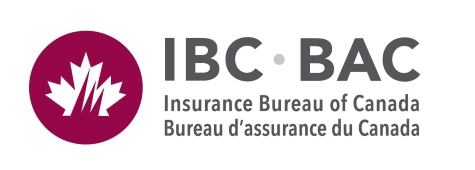Keeping Friday the 13th safe for motorcyclists
TORONTO, June 10, 2014 /CNW/ - This Friday, more than 100,000 motorcycle riders will travel through southwestern Ontario to the tiny town of Port Dover, population 6,400. They will be taking part in the "Friday the 13th" ride, an event described as "the biggest single-day motorcycle event in the world." Insurance Bureau of Canada (IBC) offers some safety tips for these enthusiasts and others getting ready to enjoy the riding season.
Steve Kee, IBC's Director of Media and Digital Communications, who is a rider, himself, and made the trek to Port Dover and he warns that the Port Dover run "is not for people who have little or no experience in group or highway riding. Make sure you are ready for it."
Motorcycle sales are up, which means new riders on the road this summer. "Riding a motorcycle requires skill, control and a different level of focus than when driving a car – for example, knowing how to brake safely while leaning into a turn."
Riding is about enjoyment and safety. "Stay alert to all potential dangers, keep your wheels on the road and keep the shiny side up. Enjoy a safe ride wherever you go," Kee adds.
Here are some tips from IBC for a safe "Friday the 13th" and riding season :
- Get professional training. Benefit from a riding course to sharpen your skills and learn the latest techniques.
- Maintain your bike. Have it regularly maintained by a good mechanic and check it yourself before and after each ride.
- Dress for the fall, not the ride. The proper gear – which includes an approved safety helmet, eye protection, a motorcycle jacket, motorcycle pants, gloves and over-the-ankle boots – may reduce your risk of serious injury. Shorts and T-shirts are not proper riding attire.
- Wear bright colours or reflective material to make you more visible to motorists.
- Stay sharp. Keep your eyes moving and do frequent shoulder checks.
- Scan the road surface ahead of you. Watch for road surface irregularities such as railroad tracks and potholes. Also, avoid gravel, oil, mud, water, wet leaves and rocks that can cause your motorcycle to slide or topple over.
- Mind the gap. Leave an adequate gap between you and the car in front of you. On open roads with higher speeds, adjust your gap.
- Be seen. Always signal lane changes and position yourself where others on the road can easily see you. Make eye contact with motorists when possible. Many drivers claim they "just didn't see" a motorcycle after colliding with it.
- Always have a way out. Identify potential hazards as you ride. Predict the worst case scenario and prepare an escape route.
About Insurance Bureau of Canada
Insurance Bureau of Canada (IBC) is pleased to celebrate 50 years as a valuable resource for insurance information. Since 1964, IBC has been working with governments across Canada to make our communities safer, championing issues that directly affect Canadians and the property and casualty (P&C) insurance industry. IBC is the national industry association representing Canada's private home, car and business insurers. Its member companies represent 90% of the P&C insurance market in Canada. The P&C insurance industry employs over 118,600 Canadians, pays more than $7 billion in taxes and levies to the federal, provincial and municipal governments, and has a total premium base of $46 billion.
To view media releases and other information, visit the media section of IBC's website at ibc.ca. Follow IBC on Twitter @InsuranceBureau or like us on Facebook.
SOURCE: Insurance Bureau of Canada

Steve Kee, Director, Media & Digital Communications, Insurance Bureau of Canada, 416-362-2031 ext. 4387, [email protected]; Ellen Woodger, Communications Consultant, Insurance Bureau of Canada, 416-483-2358, [email protected]

Share this article